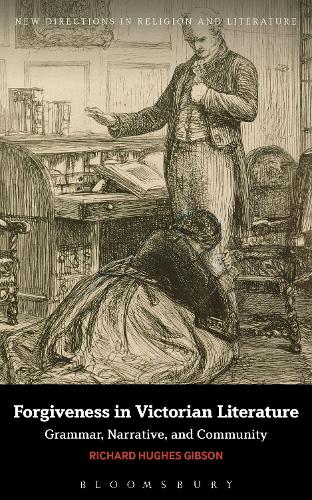
Forgiveness in Victorian Literature: Grammar, Narrative, and Community
(Paperback)
Available Formats
Publishing Details
Forgiveness in Victorian Literature: Grammar, Narrative, and Community
By (Author) Dr Richard Hughes Gibson
Bloomsbury Publishing PLC
Bloomsbury Academic
22nd September 2016
United Kingdom
Classifications
Tertiary Education
Non Fiction
Religious ethics
Christianity
820.9382414
Physical Properties
Paperback
184
Width 138mm, Height 216mm
222g
Description
Forgiveness was a preoccupation of writers in the Victorian period, bridging literatures highbrow and low, sacred and secular. Yet if forgiveness represented a common value and language, literary scholarship has often ignored the diverse meanings and practices behind this apparently uncomplicated value in the Victorian period. Forgiveness in Victorian Literature examines how eminent writers such as Charles Dickens, George Eliot, Thomas Hardy, and Oscar Wilde wrestled with the religious and social meanings of forgiveness in an age of theological controversy and increasing pluralism in ethical matters. Richard Gibson discovers unorthodox uses of the language of forgiveness and delicate negotiations between rival ethical and religious frameworks, which complicated forgiveness's traditional powers to create or restore community and, within narratives, offered resolution and closure. Illuminated by contemporary philosophical and theological investigations of forgiveness, this study also suggests that Victorian literature offers new perspectives on the ongoing debate about the possibility and potency of forgiving.
Reviews
In working out that the past cannot be erased or forgotten, but that psychological healing is possible through both extraordinary and everyday acts, Gibsons incisive analysis of the plot arcs of Victorian fiction casts light on more modern quests for effective reconciliatory processes. * Studies in English Literature, 1500-1900 *
Gibsons book includes some excellent analysis of individual texts from the Victorian period and discriminates carefully between the various attitudes to forgiveness that were evident at that time. * The Glass *
With this book, Richard Gibson has earned the right to be counted among the very best of a new cohort of Victorian literary scholars who engage religion with learned sophistication. As forgiveness is inevitability enacted by people in time, novels are particularly rich sources for exploring how the Victorians wrestled with this theologically-infused, worrisome concept. Forgiveness in Victorian Literature makes a significant and original contribution to our understanding of nineteenth-century religion, society, and literature. * Timothy Larsen, author of A People of One Book: The Bible and the Victorians *
An extraordinarily sensitive and nuanced treatment of an extraordinarily important subject. Professor Gibson clearly demonstrates the ubiquity of the language of forgiveness in the Victorian era, but rather than offering a unitary and therefore simplistic account of this theme, he demonstrates its enormous complexity. Sometimes overtly Christian, sometimes almost anything but, the grammar of forgiveness finds its serpentine way into every remote corner of Victorian literary culture. Richard Gibson is a superb guide to this phenomenon. * Alan Jacobs, Distinguished Professor of Humanities in the Honors Program, Baylor University, USA *
Forgiveness is, in this splendid and wide-ranging study, grounded in telling and retelling accounts of offence. Richard Gibson gives fresh, original readings of the works of Dickens, Eliot, Trollope, Hardy, and Wilde by showing how central are the narrative strategies and social possibilities of forgiveness to their accounts of reconciliation and its difficulties. An exhilarating treatment that deserves a wide readership. * Sarah T Beckwith, Professor of English, English Department, Duke University, USA *
Author Bio
Richard Hughes Gibson is Assistant Professor of English Literature at Wheaton College, USA.
